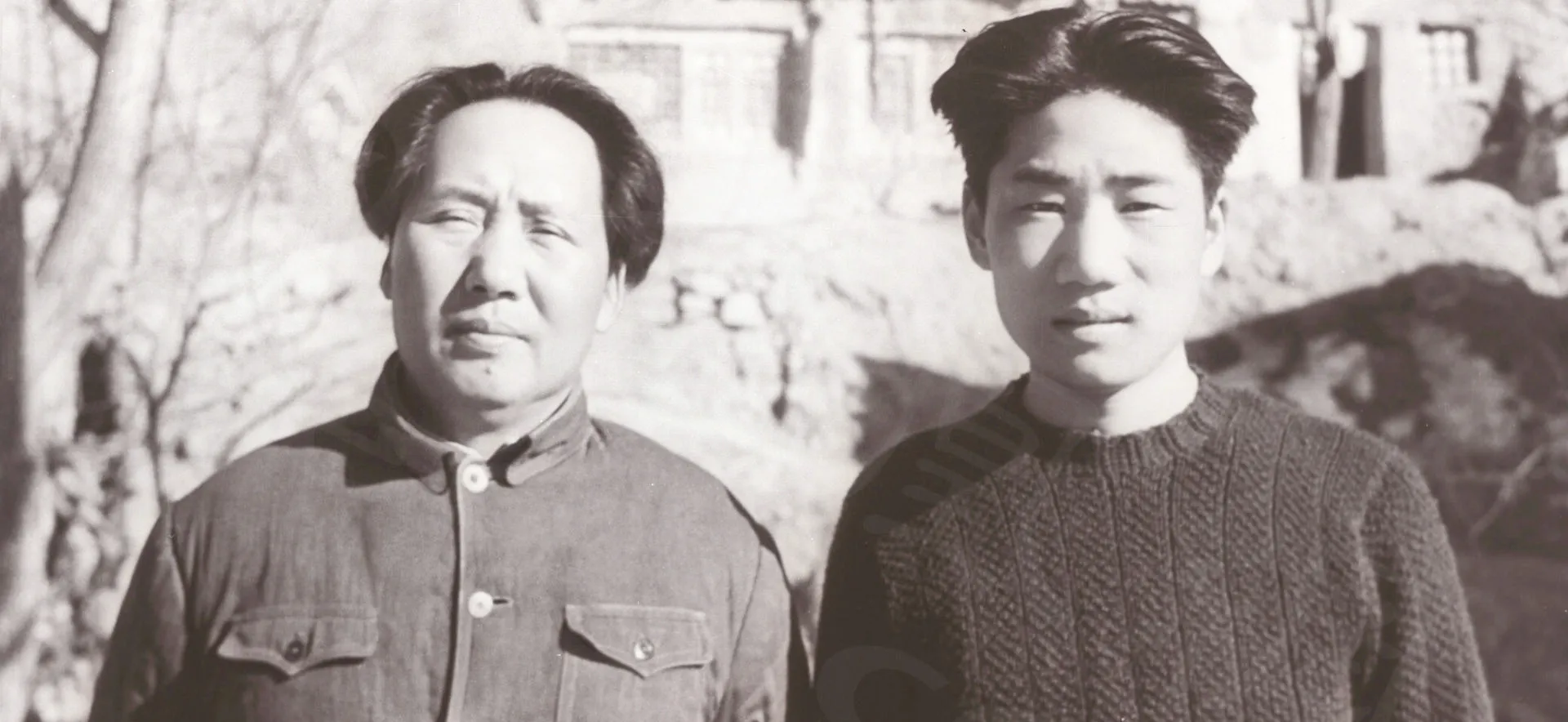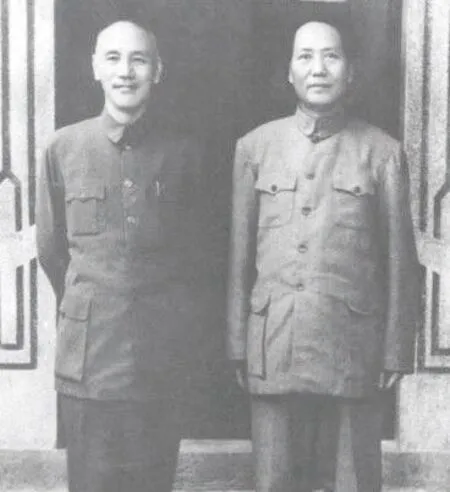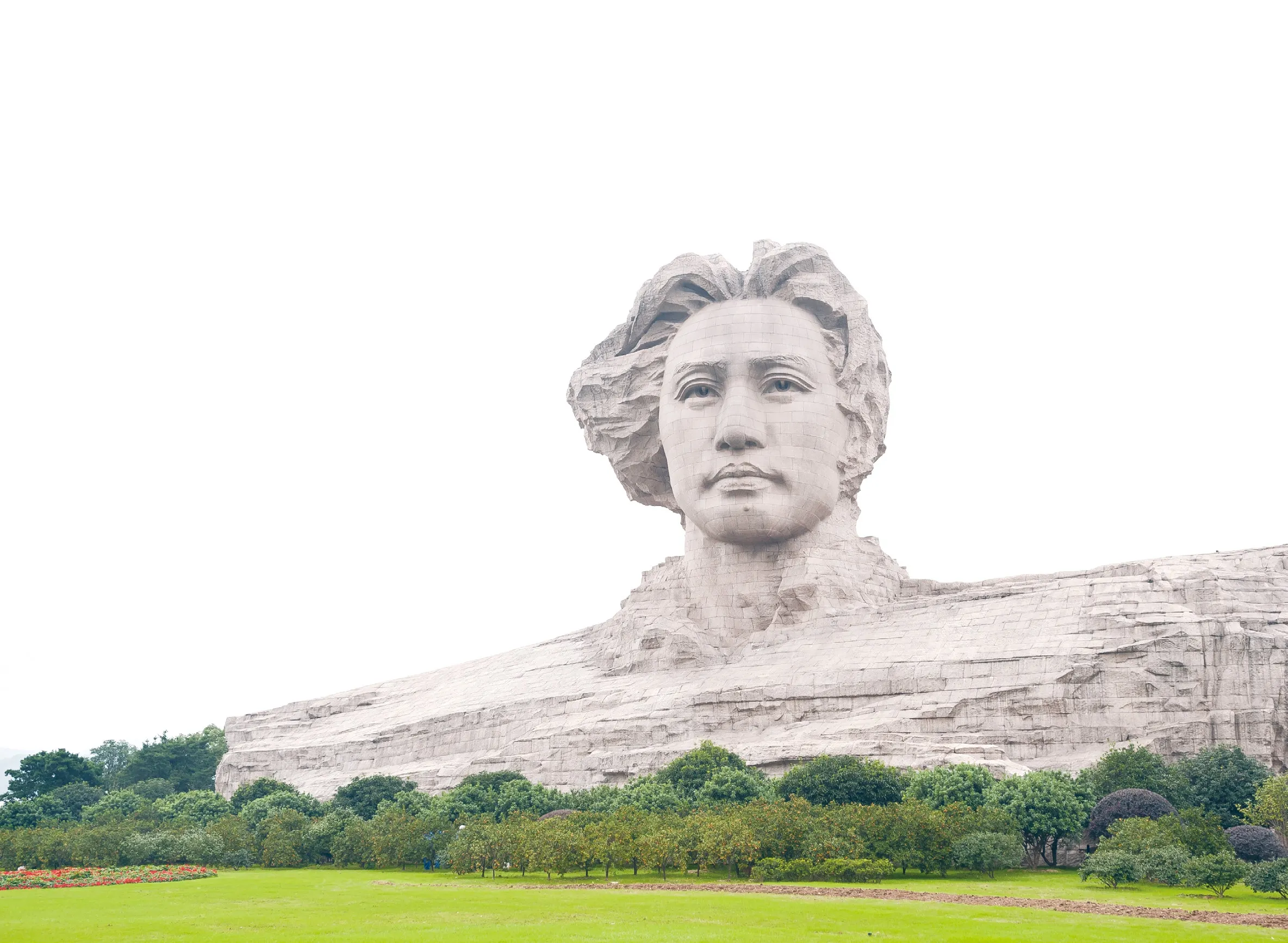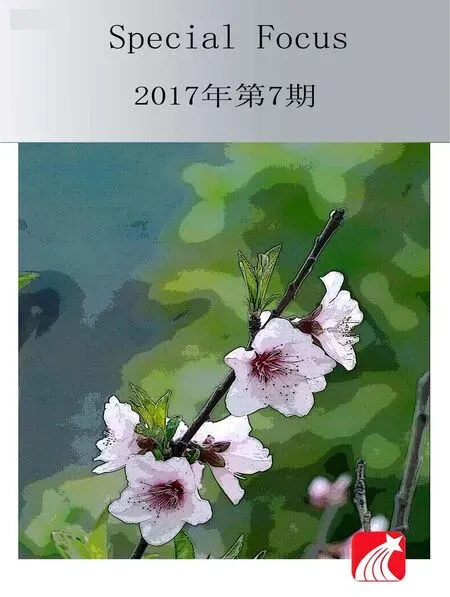Memories of Mao Zedong and His Father
2017-08-03ByZhangJinli
By Zhang Jinli
Memories of Mao Zedong and His Father
By Zhang Jinli
Born into a relatively wealthy family, Mao Zedong not only lived a comfortable life but was also exposed to books. We take it for granted that Mao had a happy childhood. However, it is detected in Edgar Snow's interview that Mao felt bittersweet and so much as stifled in his teens. This was somehow associated with his father, Mao Shunsheng. When asked about his feelings of his father as a child, Mao opened up to Snow and said “I have come to hate him.” After all, what kind of anguish caused by his father rankled Mao in spite of so many years being passed?
毛泽东的童年生活,应该是温暖的,快乐的。然而,从毛泽东对斯诺的讲述中,人们发现,他的年少时光,过得并不愉快,甚至有些压抑。而这一切,都与父亲毛顺生不无关系。提起儿时对父亲的感受,毛泽东毫不避讳地说:“我开始学会了恨他。”究竟怎样的伤害,让他多年之后,仍对父亲耿耿于怀呢?
Initial Conflict
As Mao described, the initial conflict between his father and him focused on his studies. Mao was expected to be immersed in the works of the classics and history at a private school, which was the dream of his father. “As far as I can remember, my father was defeated in court because his rival defended himself by quoting from the classics.”The loss of a lawsuit deeply hurt his heart. From then on, his father was even stricter on him—pushing his son to memorize all the classics (Four Books & Five Classics) and apply the quotations in practice. Nevertheless, Mao preferred the fascinating “leisure readings” such as The Legend of Yue Fei, Outlaws of the Marsh, Story of Sui & Tang Dynasties, Romance of the Three Kingdoms, and Journey to the West over the boring and sometimes dull works of the classics.
Unsatisfied with Mao's behavior, rigid pedantic tutors complained to his father about Mao's noncompliance. Whenever these complaints came, Mao Shunsheng burst out with rage and indiscriminately beat Mao unmercifully, which led to an unbridgeable gap between father and son. According to Mao's recollection, the first time that he ran away from home was when he was 10 years old.
“I feared going home and getting beaten, so I headed to the county town. Finally, my family found me after I had wandered for three days. To my surprise, when I was home, there was an improvement in the ‘circumstances.’ My father was a little more considerate and the tutors were a bit gentler as well. What impressed me was that my protest had taken effect. In short, the strike ended in success.”
Besides the divergence of their views in study, Mao was also disgusted by the characteristics of his father, i.e. stern discipline, excessive severity, and meanness. In the eye of Mao, his father was nothing but a severe supervisor.
“He asked me to work around the clock, either keeping accounts or working on our farmland. He was irascible; he often beat my brothers and me. He never gave us any money and fed us poorly. He bestowed favors on the hired hands on the 15th day of each month by feeding them eggs with rice, but pork was never available. However, he didn't give us eggs, and still less pork.”
The father was characterized as callous. This traumatized Mao so deeply as a child, that he still felt distressed recalling the past after so many years.

● Mao Zedong and His Son, Mao Anying 毛泽东与毛岸英
Father's Vision
According to Mao Shunsheng, there was little sympathy for a man in poverty attributable to his laziness and adversity. On the contrary, his mother was endowed with compassion for the disadvantaged.
“My mother sympathized with the poor. She always gave food to them in the years of famine, although not in the presence of father due to his objection. Consequently, the family quarreled over that issue from time to time.” It was because Mao revered mother's mercy and despised his father's callousness that he tended to empathize with the weak and argued with his father about it.
In addition, Mao's philosophy was also a far cry from that of his father. What disgusted Mao most was that father imposed his own roadmap on his sons. Sometimes after having a drink, father would spontaneously formulate his master plan in front of the sons, envisaging “in these years, Runzhi (Mao) shall take over the farmland so that I can focus on business; Runlian (Mao’s brother) shall follow his elder brother to take the farmland afterwards when Runzhi gets started in business. It is my hard work that has turned around the mess from your grandparents and established this family’s solid foundation. In the future, as long as we work together and keep industrious & thrifty, I am confident that we will possess hundreds of acres of farmlands and become a widely known and wealthy family. Then I will enjoy my twilight years and die without any regrets.”
Mao went against father's wish and expressed disdain for his father's so-called brilliant vision, and more distaste for his greed. At that time, Mao yearned to live a true and all-powerful/fruitful life like the Liangshan Heroes and Three Kingdoms Heroes.

● Mao Zedong and Chiang Kai-shek毛泽东与蒋介石
Conflict of Character
The failure of seeing eye-to-eye on many issues led to growing friction between Mao and his father. However, from a profound perspective, their confrontation was rooted in a conflict of character.
Being arbitrary and headstrong, Mao Shunsheng loved others’ compliance with him. In his opinion, father was the boss in this house; it was nature for the children to obey and follow his words and instructions. Unfortunately, Mao was a man of stubbornness and rebellion. No matter how others opposed or compelled, Mao would assert himself. In no sense would Mao surrender to the dark. In the end, it was a conflict of character that brought Mao into the biggest conflicts with his father.
“When I was 13 years old, one day my father invited a lot of guests to our home. We argued in front of them and father scolded me for laziness and uselessness, which provoked me. I talked back to him and ran away from home. My mother anxiously ran after me and tried to persuade me to go back; my father followed, cursing and instructing me to go home. I reached a pond and threatened that I would jump in if he stepped towards me. Father was somewhat frightened but he insisted that I kowtow and make an apology. I told father that I could go down on one knee if he promised not to beat me. Finally, the war came to an end.”
In contrast, Mao had affection for mother. Whenever talking about mother, he was profuse in compliments that she was a noble-minded lady with kindness and generosity. Mao commended his mother in his letter to classmates, saying there were three kinds of men in the world; those who “harm others to benefit oneself,” those who “benefit oneself without harming others,” and those that “harm oneself to benefit others”—the group to which he believed his mother belonged. Likewise, his mother had a place in her heart for the elder son. Whenever fights occurred between father and son, she always supported the son to maintain his dignity.

● Mao Zedong and Henry Kissinger 毛泽东与基辛格
Father’s Influence
It was mother’s mediation that alleviated the antagonism between father and son. To some certain extent, thanks to his father’s bad temper, Mao also learned to become patient and endurable.
“Frankly speaking, I don’t think his severity was for nothing—it pushed me to work harder on the farmland and keep accounts more carefully, lest he have anything against me.”
Although he never stopped fighting for the principle issues, Mao didn’t want to end the relationship with his father at that time. The various struggles Mao conducted were to gain the rights and respects from his father that he felt he deserved.
When telling the story about the pond, Mao said proudly“I am aware of the truth that ifipublicly protest for my rights, father will compromise; otherwise, he will just give me a good beating or perhaps worse.”, which illustrated the notion above.
In view of the attachment to his parents, Mao defied father and loved his mother. However, after pondering over his personality, it eventually came to light that Mao is more affected by his father. Mao was impressed with his father’s characteristics such as diligence and persistence, fortitude and unyieldingness, rationalism and pragmatism, and even his opinionated stubborn temperament.
Nevertheless, different from his father’s cruelty, callousness, inflexibility, and money-driven mentality, Mao had a good imagination and great compassion, and was inclined to be emotional and sentimental, which was reflective of his mother’s disposition.
One scholar on Mao’s life pointed out “Mao is considered to be a romantic poet in possession of the utmost imagination and a vigorous mind as seen through his poetry, while also being a super-rational politician—not only proficient in speculation, but also cautious, calm, and pragmatic, even in the rivalry between him and Chiang Kai-shek. What astonished us is that the two types of personalities that his parents had, in such stark contrast to each other, were unified and harmonized in Mao.”
(From Interpretation of Young Mao Zedong by Central Party Literature Press)
最初的矛盾
从毛泽东的描述中,他和父亲最初的矛盾,主要表现在读书上。当时,父亲送他念私塾,是希望他能苦读经史,“尤其一次打官司,法庭上,由于对方引经据典,导致法官判父亲败诉”,这件事让毛顺生很受刺激。从此,他更加严格要求儿子,希望儿子能熟读四书五经,并引经据典,学以致用。然而,年少的毛泽东对枯燥的经书很不感冒,他更喜欢读的,是那些引人入胜的闲书,如《精忠传》《水浒传》《隋唐演义》《三国演义》《西游记》等等。
毛泽东的这种做法,让教学死板、抱守经典的塾师们甚是不满,有时见训他不灵,就向他父亲大告其状。每当这时,毛顺生总是火冒三丈,常常不问青红皂白,上来就拳打脚踢,父子关系剑拔弩张。据毛泽东回忆,十岁那年,他曾为此第一次离家出走。
“我不敢回家,怕挨打,便朝县城方向走去。乱跑三天之后,终于被我的家人找到了。我回家之后,想不到情形有点改善,我父亲比以前稍微体谅了一些,老师的态度也比较温和一些。我的抗议行动有了效果,这给我留下深刻的印象,这次罢课胜利了。”
除了读书上的分歧,毛顺生管教粗暴,苛刻抠门,也让儿子深为不满。在毛泽东的眼里,他就是一个严厉的监工。
“他看不得我闲着,如果没有账要记,就叫我去农田干活。他性情暴躁,常常打我和两个弟弟。他一文钱也不给我们,给我们吃的是最差的。他每月十五对雇工们特别开恩,给他们鸡蛋下饭,可从来没有肉,对于我们,他既不给蛋,更不给肉。”
父亲的这种冷酷,给儿时的毛泽东,留下了深深的心理阴影,以至多年后,说起这些往事,他仍显得愤愤难平。

父亲的憧憬
毛顺生认为,一个人受穷,是因为他习性懒惰,命运不济,没什么值得怜悯的。毛泽东的母亲,对弱势人群,天性中就富有同情心。
“母亲可怜穷人,他们在荒年讨饭的时候,她常常给他们饭吃。如果我父亲在场,她就不能这样做了,因为父亲是不赞成施舍的。家里曾为这件事多次争吵。”正因敬仰母亲的慈悲,藐视父亲的冷漠,平时爱动恻隐之心,毛泽东没少和父亲发生争执。
另外,毛泽东与父亲在人生目标的取向上,也相去甚远。最令他讨厌的就是,父亲总想按自己的人生模板,来塑造儿子的未来。有时几杯老酒入肚,毛顺生就情不自禁向两个儿子描绘他心中的蓝图:“润之这两年,先把田里的担子挑起来,这样爹就能专心做生意。等过两年,润之去学做买卖,润莲(毛泽民)接替你哥,去管田里的事。想当年,你爷爷留下那么个烂摊子,爹爹我都靠辛勤努力,让毛家有了这么好的根基。今后,只要咱爷仨齐心协力,勤俭持家,我敢说不出一二十年,毛家就可置田百亩,成为远近闻名的富户。到那时,我含饴弄孙,安享天年,死也无憾了。”
听了父亲的幸福憧憬,毛泽东很是不屑,对做一个腰缠万贯的土财主,更是厌恶透顶。那时的他,向往的是能像梁山好汉一样,去过有血有肉的生活,渴望能像三国豪杰那样,拥有叱咤风云的一生。
性格的冲突
毛泽东与父亲很多方面观点不同,摩擦不断,但从更深层次上看,造成他们父子对立的根本原因,还是性格上的冲突。
毛顺生性格粗暴武断,专横跋扈,刚愎自用,喜欢别人顺从。他总觉得,既然我是一家之主,是当老子的,我说的话,我吩咐的事,做儿女的就应服从,就要执行。而毛泽东性格倔强,非常叛逆,他认为对的事,不管别人怎么反对,怎么阻拦,他都要坚持到底,不达目的誓不罢休;而他认为不对的事,即使再压再逼,再打再骂,他也决不妥协,更不屈服。正是这种性格上的对立,终于导致他们父子之间爆发一次巨大冲突。
“我13岁的时候,有一次,父亲请了许多客人到家里,我俩在客人面前争论起来。父亲当众骂我懒惰无用,这激怒了我,我回顶了他,就离开了家。母亲急着追出来,竭力劝我回去,父亲也赶来,一边骂,一边命令我回去。我走到一个池塘边,恫吓他说,如果他再走近一步,我就跳下去。父亲有些怕了,但坚持要我磕头认错,我表示如果他答应不打我,我可以跪下一条腿磕头。战争就这样结束了。”
与对父亲的态度相反,对母亲,毛泽东则是一往情深。每当和别人说起母亲,他总是充满赞美之辞:“我母亲为人慷慨厚道,总是愿意帮助别人,是个心地善良、品格高尚的女性。”在给同学的信中,他还曾这样说:“世上有三种人:损人利己的人;利己而不损人的人;可以损己而利人的人。而我母亲正是这后一种人。”当然,对大儿子,母亲也格外偏爱。每当父子俩发生矛盾,她总是站在儿子一边,极力维护儿子的尊严。

父亲的影响
正因有母亲的斡旋,父子俩的对立情绪,才开始有所缓和,而且在某些方面,毛泽东对父亲的坏脾气,也学会了忍耐和忍受。
“他的严酷不能说全没好处,它使我更勤快地干活,更仔细地记账,以免有把柄让他抓住。”
虽在原则问题上,毛泽东从未停止争斗,甚至以离家出走,要跳池塘相威胁,但总体上看,那时的他,不想与父亲彻底闹僵。他所做的各种抗争,更多的成分,还是想从父亲那里,获得应有的权益和尊重。
最生动的例子是,当他向斯诺讲完跳水塘的故事,曾不无得意地说:“我从这件事认识到,如果公开反抗,保卫自己的权利,父亲就软下来,可如果我仍温顺驯服,他反而打骂我更厉害。”
从和父母的关系看,毛泽东属于典型的抗父爱母,可纵观毛泽东的性格,你却会发现,他反而受父亲的影响更多。比如,毛顺生的勤奋执着,刚毅果敢,坚强不屈,永不服输,理性务实,脚踏实地……甚至包括他的刚愎、独断、固执这些特点,都在儿子身上,烙下深深的印迹。
当然,与毛顺生的吝啬、冷漠、刻板、只知赚钱、缺乏情趣不同,毛泽东情感丰富,富于想象,有很强的同情心。有时他还很感性,常常睹物思人,多愁善感。这些性格特征,恰恰折射出母亲的影子。
一位研究毛泽东的学者指出:“读毛泽东的诗词,你会觉得他想象力超强,思维跳跃,是一个浪漫的诗人。可你再研究毛泽东与蒋介石的博弈,又发现他精于算度,非常谨慎,极为冷静,不抱一丝侥幸,他又是一位超理性的政治家。令人惊奇的是,这反差极大的两面性格,却在毛泽东的身上,实现了兼容。”
(摘自《解读青年毛泽东》中央文献出版社)
毛泽东与父亲
文|张锦力
